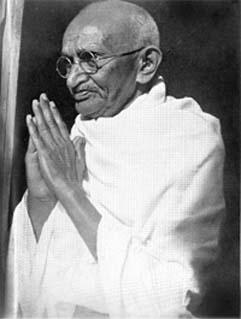The Role of Love in Interfaith Dialogue and Cooperation

Introduction
Interfaith dialogue and cooperation have become increasingly important in today's globalized world, as people from different religious backgrounds come together to address shared concerns and find common ground. While religious diversity is a rich source of cultural and spiritual richness, it can also create tensions and misunderstandings. In this article, we will explore the role of love in interfaith dialogue and cooperation, drawing on the teachings of various world religions to shed light on the importance of love in bridging divides and fostering understanding.
The Role of Love in Christianity
In Christianity, love is central to the faith. The Bible teaches that God is love, and that we are called to love one another as He loves us (1 John 4:16). Jesus himself modeled love through his compassionate ministry, healing the sick, feeding the hungry, and welcoming the outcasts (Matthew 25:35-36).
In Christianity, love is not just a feeling, but a way of life. It requires us to put others before ourselves, to forgive those who have wronged us, and to seek to understand and appreciate the beliefs and practices of others. As the Apostle Paul wrote, "Love is patient, love is kind. It does not envy, it does not boast, it is not proud. It does not dishonor others, it is not self-seeking, it is not easily angered, it keeps no record of wrongs. Love does not delight in evil but rejoices with the truth. It always protects, always trusts, always hopes, always perseveres" (1 Corinthians 13:4-7).
The Role of Love in Islam
In Islam, love is also central to the faith. The Qur'an teaches that God is the most loving and merciful, and that believers are called to follow in His footsteps by loving and caring for one another (Qur'an 5:2). Islam also emphasizes the importance of charity, which is seen as a form of love that helps those in need.
In Islam, love is seen as a moral obligation, and it is expected that believers will actively seek to build bridges of understanding and cooperation with people from other religious backgrounds. The Prophet Muhammad is often quoted as saying, "The best of you are those who are the most charitable to the poor and the weak, and those who are the most just in their dealings with people."
The Role of Love in Buddhism
In Buddhism, love is also central to the faith. The Buddha taught that true happiness comes from compassion and loving-kindness, and that we can cultivate these qualities through meditation and mindfulness practices.
In Buddhism, love is seen as a way of being in the world, rather than a feeling. It requires us to be present and attentive to the needs and sufferings of others, and to act with kindness and compassion towards them. The Buddha taught that we should treat all beings with respect, regardless of their beliefs or practices, and that we should strive to live in harmony with nature and all living beings.
The Role of Love in Hinduism
In Hinduism, love is also central to the faith. Hinduism teaches that the ultimate goal of life is to achieve moksha, or liberation from the cycle of birth and death. This is achieved through the practice of dharma, which includes social and ethical conduct, as well as spiritual practices such as yoga and meditation.
In Hinduism, love is seen as a way of living in harmony with the divine, and of serving the needs of others. The Hindu scriptures teach that we should treat all beings with respect and kindness, and that we should strive to live in a state of balance and harmony with nature and all living beings.
The Role of Love in Sikhism
In Sikhism, love is also central to the faith. Sikhism teaches that the ultimate goal of life is to achieve moksha, or liberation from the cycle of birth and death. This is achieved through the practice of dharma, which includes social and ethical conduct, as well as spiritual practices such as meditation and service to others.
In Sikhism, love is seen as a way of living in harmony with the divine, and of serving the needs of others. The Sikh scriptures teach that we should treat all beings with respect and kindness, and that we should strive to live in a state of balance and harmony with nature and all living beings.
The Role of Love in Judaism
In Judaism, love is also central to the faith. Judaism teaches that God is the most loving and merciful, and that believers are called to follow in His footsteps by loving and caring for one another (Exodus 20:12).
In Judaism, love is seen as a moral obligation, and it is expected that believers will actively seek to build bridges of understanding and cooperation with people from other religious backgrounds. The Jewish tradition teaches that we should treat all beings with respect and kindness, and that we should strive to live in a state of balance and harmony with nature and all living beings.
The Role of Love in Other World Religions
Love is also central to many other world religions, including Taoism, Confucianism, and Shintoism. In these traditions, love is seen as a way of living in harmony with the divine, and of serving the needs of others.
Conclusion
Love is a universal language that transcends religious and cultural boundaries. In today's world, where people from different backgrounds are coming together to address shared concerns and find common ground, the role of love in interfaith dialogue and cooperation is more important than ever. By practicing love in our daily lives, we can build bridges of understanding and cooperation that can help us to live in a more harmonious and just world.





